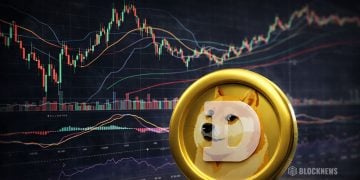- Epic Games, the creator of the famous Fortnite game files a case against Apple’s in-app payment requirement.
- Apple mandates every iOS app developer to use its in-app payments which charges a 30% commission.
- Crypto and NFT app developers may be given the option to direct users to their systems when making purchases.
Apple’s requirement for app developers to use its in-app payment method has been ruled as a violation of California’s Unfair Competition Law.
On April 24, Epic Games filed a case against Apple Inc., claiming that Apple acted unlawfully by barring app distribution on iOS gadgets to its App Store, demanding in-app purchases, and restricting an app developer from communicating their preferred payment choices to Apple device users.
The United States Court Of Appeals ruled the case For The Ninth Circuit, and it alleged that Apple released the iPhone to third-party app developers. It built a “walled garden” rather than an accessible ecosystem that would allow iOS app developers and users to transact without requiring Apple’s mediation.
The anti-steering law is an Apple policy that states that no iOS app developer would be permitted to direct its app users to make transactions on external payment platforms.
What Is The Developer Program Licensing Agreement?
The DPLA is a contractual agreement that must be signed by iOS app developers looking to have Apple disperse the developer’s apps to iOS users. The app creators, such as Epic Games, would be required to pay $99 to Apple and sign the DPLA before the multi-trillion-dollar company could oblige by the request.
When an app developer signs the Developer Program License Agreement (DPLA), which is effectively an adhesion contract, they are granted access to Apple’s extensive user base worldwide. Apple is willing to license its intellectual property to third parties through the DPLA in exchange for a one-time fee of $99 and a portion of 30 percent of the profits made by app developers.
According to the court’s findings, the subsidiary firms of Epic Games have suffered financial losses due to Apple’s policy, which has discouraged many potential customers from signing up for Epic Games’ service.
The panel determined that Epic Games had violated its contract with Apple, although the court decided in favor of Apple Inc. on multiple issues.
“The panel held that independent of the district court’s errors, Epic failed to establish, as a factual matter, its proposed market definition and the existence of any substantially less restrictive alternative means for Apple to accomplish the procompetitive justifications supporting iOS’s walled-garden,” the filing reads.
The court reexamined Apple’s violation of the anti-steering provision. It concluded that Epic Games would have attracted more customers if they had been advised of the lower commission rate of 12% rather than Apple’s rate of 30%.
Therefore, if Apple does not respond by appealing to the court ruling, crypto and NFT iOS app developers would benefit from this ruling as they would not be required to pay Apple its 30% commission.
Conclusion
Apple’s anti-steering policy has allegedly caused more harm than good for Epic Games—the creator of Fortnite and other iOS app creators wishing to onboard their apps on Apple devices.














